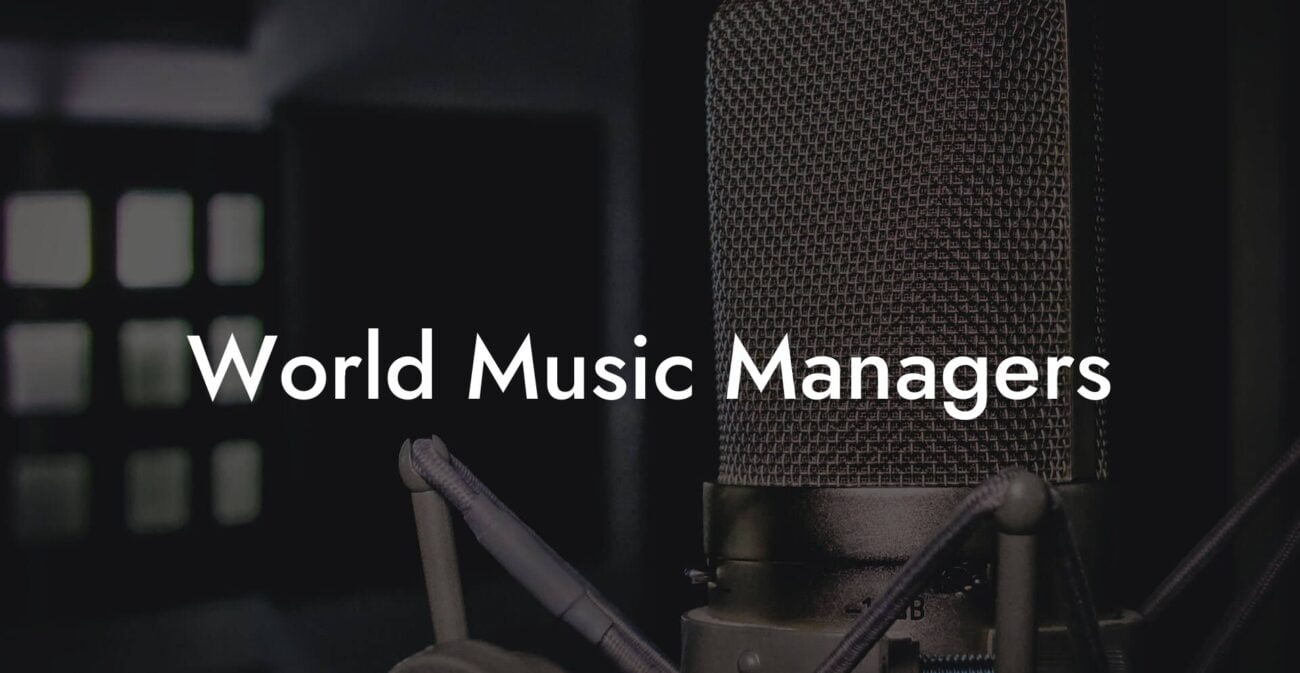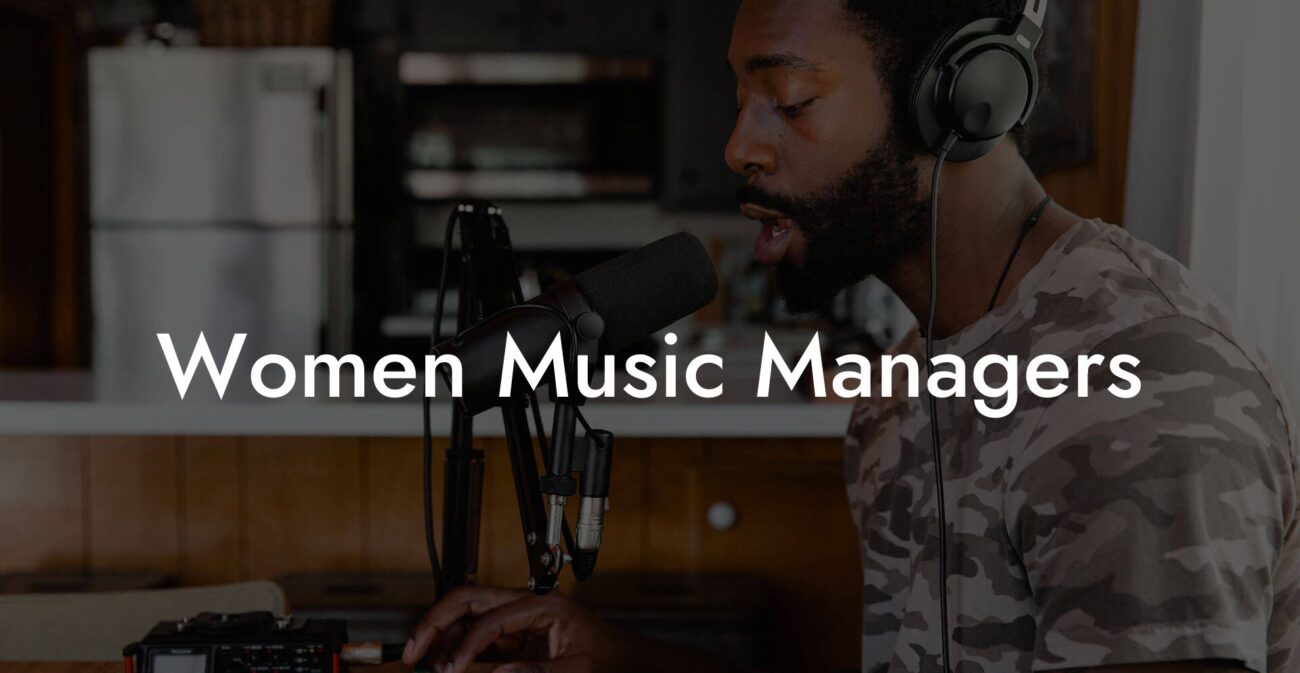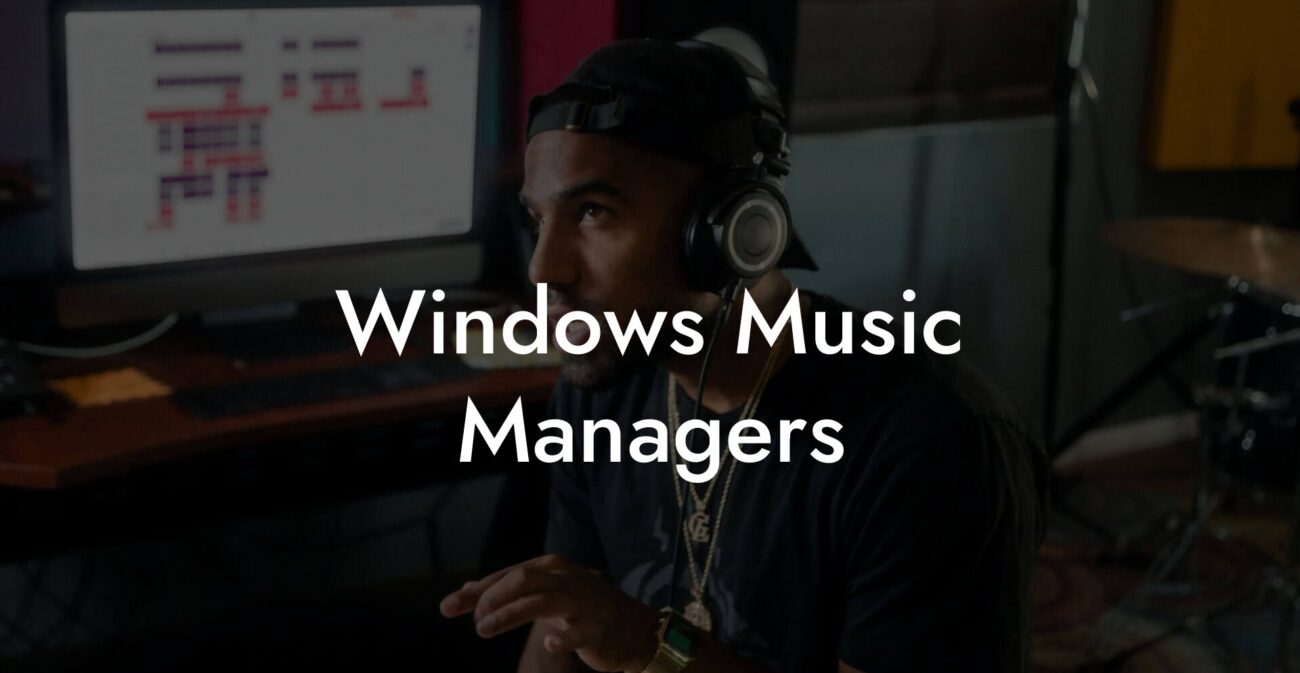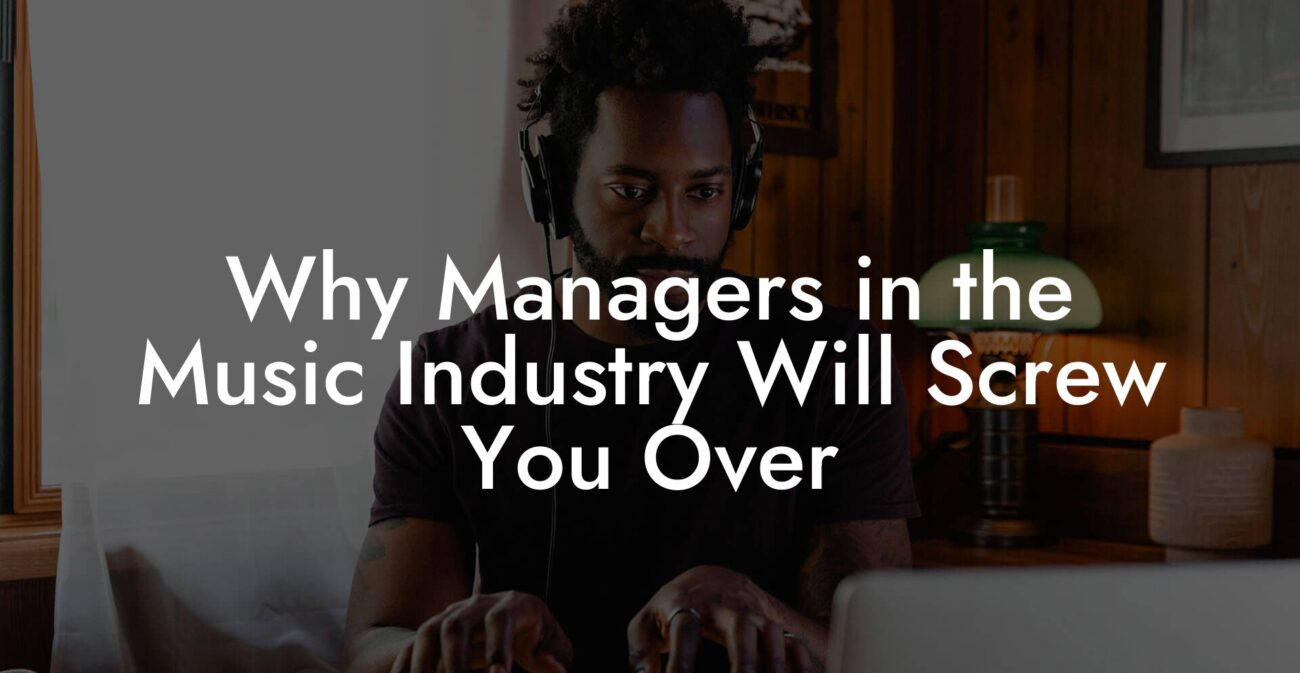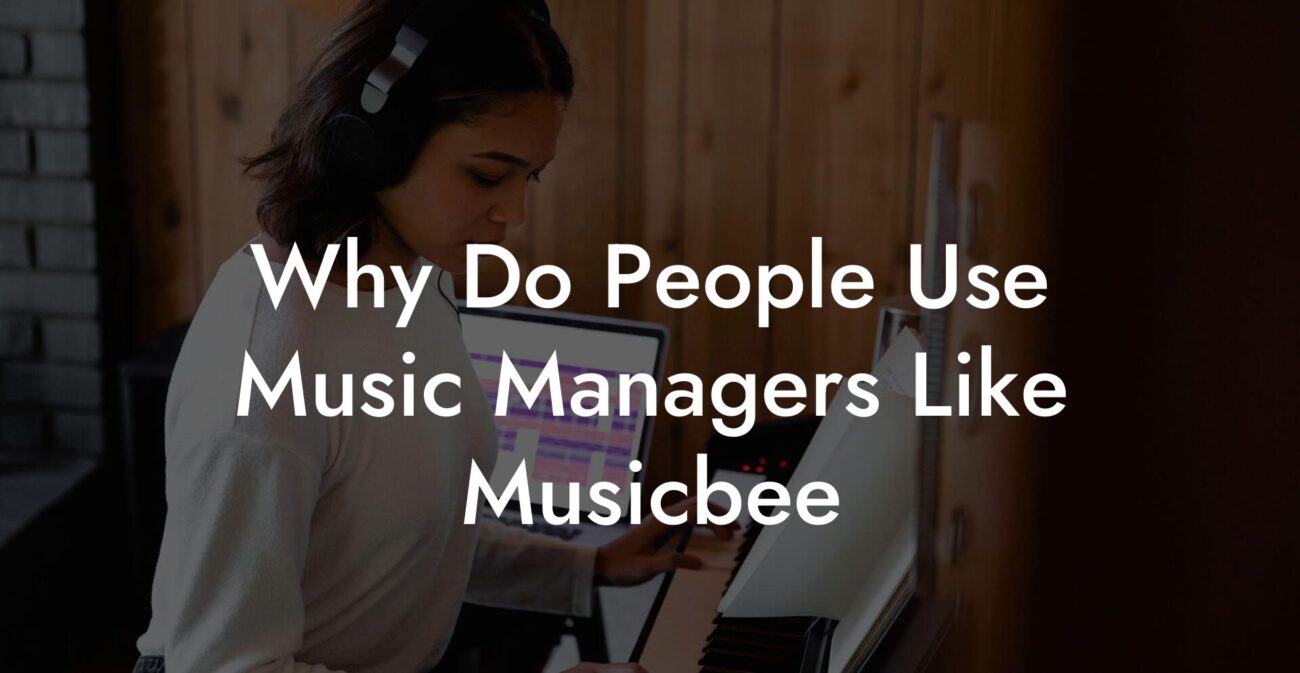Songwriting Advice
What’s an A&R in Music
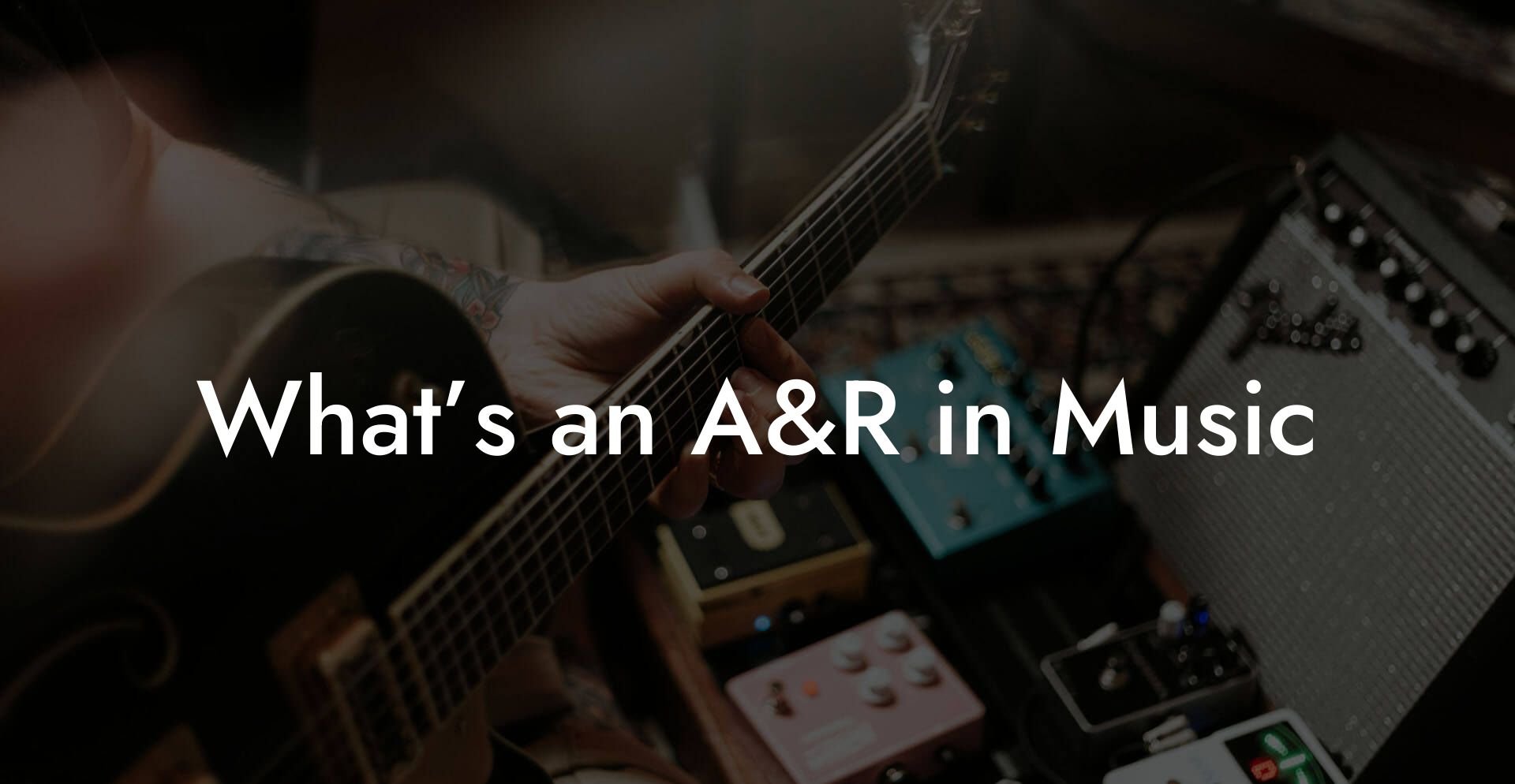
Ever wondered what the mysterious letters “A&R” really mean in the world of music? Picture a savvy mix of talent scout, creative consultant, and industry insider all rolled into one, the unsung heroes behind countless chart-topping tracks. In this guide, we’re diving deep into the realm of A&R in music, revealing their ins and outs, the secret sauce they add to new music, and why they should be on every aspiring songwriter’s radar. Buckle up, because whether you’re an indie artist, a bedroom beat-maker, or that friend who can’t stop humming the next big hit, this journey into A&R is as entertaining as it is enlightening.
Quick Interruption: Ever wondered how huge artists end up fighting for their own songs? The answer is in the fine print. Learn the lines that protect you. Own your masters. Keep royalties. Keep playing shows without moving back in with Mom. Find out more →
Quick Interruption: Ever wondered how huge artists end up fighting for their own songs? The answer is in the fine print. Learn the lines that protect you. Own your masters. Keep royalties. Keep playing shows without moving back in with Mom. Find out more →
Quick Links to Useful Sections
- Understanding A&R: The Unsung Heroes of the Music Industry
- The Role of A&R in Music: More Than Just a Scout
- How A&R Scouts Spot Talent: The Art of the Demo
- The A&R Journey: From Demos to Deals
- Initial Discovery
- Creative Meetings and Feedback
- The Demo Session
- Sealing the Deal
- A&R and Songwriting: Turning Lyrics Into Legends
- A Day in the Life of an A&R Rep: Behind the Industry Curtain
- The Impact of A&R on Music Careers: A Launchpad for Success
- Spotlight on Success: Real-Life Encounters with A&R
- How A&R Can Shape Your Songwriting Journey
- Resources and Community Support: Your Next Steps
- Integrating Digital Tools: Leveraging Technology for Your A&R Journey
- Overcoming Challenges: Embracing Rejection and Learning to Grow
- The Future of A&R: Trends to Watch
- FAQ: Your A&R Questions Answered
- Your Journey to A&R Empowerment
Understanding A&R: The Unsung Heroes of the Music Industry
A&R stands for Artists and Repertoire, but don’t let the fancy jargon fool you. These industry pros are the gatekeepers to major record labels, the talent spotters who sniff out that next big sound, and the creative collaborators who help shape an artist’s musical direction. Think of them as the bridge between raw, unpolished talent and the big, bright world of commercial success.
While many of us might imagine A&R reps chilling in sunglasses, sippin’ artisan coffee, their role is dynamic, fast-paced, and intensely creative. They’re the ones mining through demos, scouting live shows, and connecting with musicians on social media to find the hidden gems of tomorrow. They hold the keys to exclusive connections, studio time, and sometimes, even a record deal.
For any aspiring musician or songwriter, an A&R rep isn’t just a contact in the industry, they’re a potential mentor and collaborator who understands the art of turning raw musical potential into the polished, radio-ready sound that listeners can’t get enough of.
The Role of A&R in Music: More Than Just a Scout
At its core, A&R is all about talent discovery and development. But don’t mistake it for a one-dimensional role. The A&R rep is like the backstage wizard of the music industry, working to develop artists, match them with the right producers, and even suggest directions for songwriting that align with current trends. Their input can transform a simple demo into a full-blown hit.
In many ways, an A&R rep's role is a blend of art and business. They’re tasked with:
- Scouting Talent: Constantly on the lookout for those rare, out-of-the-box musical visions that could redefine a genre.
- Building Relationships: Cultivating strong professional bonds with artists, producers, songwriters, and managers to create a vibrant network.
- Project Development: Shaping the creative vision of a project by giving constructive feedback on songs, lyrics, and overall production.
- Market Savvy: Keeping an eye on trends to ensure the music fits the current market needs without compromising artistic integrity.
When you’re trawling through your old demos or drafting your next hit, consider the A&R perspective. What might sound groundbreaking to you could benefit from a spark of strategic insight. And while it can sometimes feel like a tough nut to crack, landing the interest of an A&R rep might just be the game-changing opportunity you’ve been waiting for.
How A&R Scouts Spot Talent: The Art of the Demo
Let’s be honest: the music industry is a bustling treasure hunt for the next big sound. A&R scouts are out there, combing through studio demos, live recordings, and even social media videos, searching for that uncut diamond. With thousands of submissions coming in from every corner of the globe, how do they decide what stands out from the noise?
First, it’s all about the vibe. A genuine spark of originality, whether in a soulful melody or a raw, edgy lyric, can catch an A&R rep’s attention. They’re experts at quickly distinguishing between something that’s merely trendy and something with the potential to shape future trends.
Consider the following when concocting your next demo:
- Authenticity: Show off your unique artistry. A&R reps are looking for something that isn’t a cookie-cutter copy of the latest viral hit.
- Creativity in Wordplay: For those of you who are songwriting enthusiasts, the way you craft your lyrics matters. The clever twist of a phrase or an unexpected metaphor can make your work memorable.
- Production Value: While raw talent is appreciated, a little polish, such as clear audio and thoughtful arrangement, can help your demo shine brighter amid a sea of submissions.
- Potential for Evolution: A&R reps want to see a spark. Even if your song isn’t perfect yet, they’re looking for a foundation that you can build on with the right guidance.
Pair your creative genius with a little technical know-how, and you’re already one step ahead in catching an A&R rep’s ever-watchful eye.
The A&R Journey: From Demos to Deals
Landing on an A&R rep’s radar is only the beginning of a thrilling journey. Once you’ve managed to catch their interest, a whirlwind of meetings, demo sessions, and creative brainstorming ensues. This is where your raw talent gets honed and molded into something commercially viable.
Here’s what this journey often looks like:
Initial Discovery
Whether it’s through an online submission, a live gig, or a social media post, the first impression counts. If your demo resonates with an A&R rep, you could be invited for a chat, sometimes over coffee, sometimes at an industry event, where your musical vision is explored further.
Creative Meetings and Feedback
Think of these meetings as a mix between a creative brainstorming session and a friendly critique. An A&R rep might suggest changes to your lyrics, recommend different production techniques, or even connect you with the right producer who can amplify your sound. It’s all about collaboration, and it’s perfectly normal to feel both excited and a bit overwhelmed by all the input.
The Demo Session
This is where you take your refined ideas into the studio. An A&R rep might accompany you into the session, offering advice on performance, helping you pick the best takes, and ensuring every beat is in sync with your vision. This phase is critical, it’s the last stretch before your music might earn a spot on a major label’s roster.
Sealing the Deal
If everything clicks, you could soon find yourself negotiating a record deal. This part of the journey is as exciting as it is nerve-wracking, marking the transition from an independent artist to a professional with the backing of a recognized label. It’s like leveling up in your musical career, with the A&R rep acting as both coach and cheerleader along the way.
It may seem like a rollercoaster ride, but remember, the twists and turns are all part of the process that leads to musical success. Every feedback session and creative tweak is a stepping stone to making your art the best it can be.
A&R and Songwriting: Turning Lyrics Into Legends
When you’re knee-deep in song lyrics and guitar chords, you might wonder: what role does an A&R rep play in the creative process? Contrary to the stereotype of a suity, indifferent executive, a great A&R rep is often a musician at heart. They appreciate the nuance of a well-written verse and the power of a melody that lingers long after the song ends.
Here’s how A&R can influence songwriting:
- Refining Your Message: They help you hone your lyrical themes so that your message resonates with a broader audience, ensuring your story is both personal and universal.
- Melody Mastery: With an ear for hits, they might suggest subtle tweaks to your melody or arrangement that can turn a good song into an unforgettable one.
- Collaborative Spirit: Whether it’s pairing you with an exceptional co-writer or introducing you to a producer with innovative ideas, A&R reps cultivate collaborations that can take your tracks to new heights.
- Staying Trend-Forward: They keep tabs on emerging trends, ensuring your music is not only timeless but also relevant to today’s rapidly evolving musical landscape.
At Lyric Assistant, we totally get the struggle to find that perfect lyrical line or catchy chorus. Think of us as your digital partner in the creative corner, ready to help you craft lyrics that even the most seasoned A&R rep would applaud. With your talent and a little A&R magic, your songwriting could just be the next big breakout hit.
A Day in the Life of an A&R Rep: Behind the Industry Curtain
Ever wonder what it’s like to live the A&R life? Spoiler alert: it’s not all fancy meetings and red-carpet events, although there is plenty of those, too. A typical day for an A&R rep is a mix of scouting potential talent, catching up with creative feedback sessions, and networking at industry events.
Here’s a snapshot:
- Morning Coffee and Demos: A&R reps often start their day with a strong cup of java and a slew of new demos submitted online. They sift through these recordings, sometimes during their commute, looking for that raw spark of genius.
- Live Gig Hopping: Whether it’s a local open mic or a buzzing club, they’re always on the lookout for the next breakout act.
- Creative Brainstorming: Mid-day might find them in a trendy co-working space, huddled over a laptop reviewing social media clips and discussing potential musical directions with colleagues or even artists.
- Meetings and Studio Sessions: Afternoons are typically booked with appointments, discussing song tweaks, planning recording sessions, or simply mentoring emerging talent.
- Evening Networking: As the day winds down, industry mixers, concerts, or casual jam sessions offer opportunities to connect, share ideas, and discover new sounds.
The life of an A&R rep is a delicate balance between art and commerce, spontaneity and strategy. And while it can be a whirlwind, their passion for music never fades, a lesson for anyone striving to make it big in the industry.
The Impact of A&R on Music Careers: A Launchpad for Success
For many artists, breaking into the music industry without the backing of a key industry player can feel like trying to launch a rocket without fuel. That’s where A&R comes in, a launchpad that transforms raw musical ideas into polished, commercially successful endeavors.
Here’s how connecting with a great A&R rep can revolutionize your music career:
- Industry Connections: A&R reps have extensive networks that can introduce you to top-notch producers, songwriters, session musicians, and even marketing gurus. They’re like your personal golden ticket to the industry’s inner circle.
- Professional Guidance: Beyond just finding a record deal, a seasoned A&R rep can mentor you, fine-tuning your artistic direction and providing feedback that can elevate your music to new, chart-topping heights.
- Access to Resources: Whether it’s state-of-the-art recording studios, cutting-edge production technology, or the latest trends in digital marketing, having an A&R rep on your side means you’re never short on the resources required to succeed.
- Creative Collaboration: In the hands of a talented A&R rep, your existing sound can be molded into something fresh, innovative, and undeniably marketable. They bring a blend of business acumen and artistic sensibility that can transform your creative vision into a full-scale project.
Remember, for every hit record, there’s a behind-the-scenes pro who helped shape it. So if you’re looking to one day see your name on the album cover, understanding the impact of A&R on music careers is the first step toward realizing that dream.
Spotlight on Success: Real-Life Encounters with A&R
Nothing beats a good success story to illustrate the magic of A&R. Across the music industry, countless artists have transformed their sound, and their lives, thanks to that all-important nod from an A&R rep.
Consider the journey of indie singer-songwriter Zoe, who posted her original acoustic covers on social media. One day, an A&R rep stumbled upon her heartfelt performance and saw the raw emotional depth of her lyrics (and her killer voice). After a few rounds of feedback and a deep dive into her creative process, Zoe quickly evolved into a polished artist with a clear musical narrative and, ultimately, a record deal. Her story is a reminder that the magic of A&R lies in recognizing potential and nurturing it with a blend of professional insight and creative freedom.
Then there’s Jamal, an experimental producer who was simultaneously blending genres in a way that few dared to try. His innovative mix of electronic beats and soulful vocals initially confused some listeners, until an A&R rep stepped in. Seeing beyond the apparent chaos, the rep worked closely with Jamal to channel his unique style into a sound that was as groundbreaking as it was accessible. Today, Jamal’s tracks are blazing through playlists, a testament to what can happen when a visionary meets the right guidance.
These real-life encounters are more than just feel-good stories, they’re case studies in how a well-placed A&R connection can serve as the catalyst for transforming artistic ambition into reality.
How A&R Can Shape Your Songwriting Journey
For songwriters and lyricists, the journey from private scribbles in a notebook to a record-breaking single is filled with creative challenges, and that’s where A&R can be an absolute game changer. Not only do A&R reps offer an objective ear, but they also provide targeted feedback that can help sharpen your lyrical narrative and musical arrangement.
Here are a few ways in which A&R rep involvement can effectively shape your songwriting:
- Objective Feedback: Receiving unbiased critique on your lyrics and melodies can help you refine your sound, making sure that every line, chord, and rhythm works to capture your intended emotion.
- Collaborative Refinement: An experienced A&R rep can pair you up with co-writers or producers who bring a fresh perspective, turning your solo effort into a dynamic collaborative project.
- Production Insights: Beyond the words, A&R reps help ensure that your music is produced to a high standard, connecting you with the right technical talent to bring your vision to life.
- Market Positioning: They can advise on how your music fits with current trends, which doesn’t mean compromising your artistic identity but rather framing your work in a way that resonates with today’s audiences.
If you’re crafting your next hit, keep in mind that a little guidance from an A&R visionaire might be exactly what you need to transition from “just writing” to “writing that sells.”
Resources and Community Support: Your Next Steps
Now that you’ve got the inside scoop on what A&R in music is all about, it’s time to take action. Whether you’re looking to refine your songwriting, submit that killer demo, or simply get feedback from someone who knows the industry, there’s a world of resources available to you.
Here are some actionable steps to get you closer to your A&R dream:
- Educate Yourself: Dive into online courses and webinars on music production, songwriting, and the business side of the industry. Sites like Berklee Online, Coursera, and even YouTube can be treasure troves of information.
- Network with Industry Insiders: Attend local gigs, open mics, and music conferences where A&R professionals are likely to be scouting. Connect on LinkedIn and Twitter to keep up with industry trends and to build genuine relationships.
- Hone Your Craft: Utilize digital tools like Lyric Assistant to polish your songwriting skills. Experiment, refine your lyrics, and be unafraid to share your ideas with fellow musicians for constructive feedback.
- Create a Stellar Demo: Work on producing a high-quality demo that truly represents your sound. Invest time in recording and arranging your tracks, because first impressions matter!
- Join Music Communities: Participate in online forums, social media groups, and local meetups dedicated to music creation. Platforms like Reddit’s r/WeAreTheMusicMakers or Facebook groups for indie musicians can offer valuable insights and support.
- Seek Mentorship: Look for mentors or peers who have successfully navigated the A&R landscape. Their experiences could provide a roadmap and help you avoid common pitfalls.
The journey to a successful music career can be challenging, but you’re not in it alone. Surround yourself with a community that supports your creative growth and leverages every tool at its disposal, from cutting-edge platforms to live feedback from industry pros.
Integrating Digital Tools: Leveraging Technology for Your A&R Journey
In today’s tech-driven world, the traditional paths to the spotlight have expanded exponentially. Digital tools are revolutionizing how artists perfect their craft, submit demos, and even network with industry insiders. For those with a penchant for writing lyrics and experimenting with sound, platforms like Lyric Assistant offer a seamless, AI-powered way to generate, edit, and polish your music’s key ingredients.
Imagine having a digital partner that’s available 24/7 to help you overcome writer’s block or to bundle your lyrics with the perfect rhyme and rhythm. Integrating these digital resources not only enhances your creative output but also shows A&R professionals that you’re serious, organized, and ready to innovate. Whether you’re remixing an old hit or crafting a new anthem, advanced songwriting tools can give you an edge in a competitive market.
By leveraging these technologies alongside traditional networking and creative feedback, you position yourself at the cutting edge of the digital music revolution. Combine the best of both worlds, a human touch with AI efficiency, and get ready to stand out in a crowd of aspiring artists.
Overcoming Challenges: Embracing Rejection and Learning to Grow
Let’s be real: the path to musical success isn’t just paved with hit singles and smooth record deals. It’s also littered with rejection emails, missed gig opportunities, and the occasional awkward industry mishap. But here’s the kicker, every “no” is just another learning opportunity that refines your craft and strengthens your resolve.
Aspiring musicians often face the daunting reality of rejection, whether it’s a demo that didn’t quite hit the mark or feedback that stings a little more than you expected. However, the transformative power of A&R often lies in their honest advice. Rather than viewing criticism as a setback, see it as a stepping stone that propels you closer to your ultimate breakthrough.
Embrace these challenges with a sense of humor and curiosity. For every setback, there’s a chance to recalibrate, improve your songwriting, and eventually create a sound so compelling that even the toughest A&R rep can’t help but take notice.
The Future of A&R: Trends to Watch
The music industry is ever-evolving, and the role of A&R is no exception. With the rise of streaming platforms, social media trends, and digital marketing, the way A&R reps scout and nurture talent is undergoing a radical transformation. Let’s take a peek at some trends shaping the future of A&R:
- Data-Driven Decisions: Advanced analytics are now a key part of the scouting process. A&R reps are increasingly utilizing data insights to understand listener preferences, predict trends, and tailor their strategies to emerging genres.
- Social Media Spotting: Platforms like TikTok, Instagram, and YouTube have become gold mines for talent discovery. Viral moments and fan engagement on these platforms often translate into major record deals.
- Remote Collaboration: In today’s globalized world, an A&R rep might discover talent halfway across the globe without ever meeting in person. Remote collaborations, online studios, and virtual feedback sessions are the new norm.
- Inclusivity and Diversity: The modern music landscape celebrates diverse voices and stories. A&R reps are actively seeking out unique perspectives and nurturing underrepresented talent, which is reshaping the creative narrative for a new generation.
- Integration of AI Tools: From refining lyrics to suggesting chord progressions, AI tools are proving to be indispensable for modern songwriters. They complement the traditional A&R approach by streamlining the creative process.
The future is dynamic, with technology and creativity intertwining in ways that continuously reshape the music industry. Staying ahead of these trends not only makes you a more versatile artist but also ensures that you remain relevant in an ever-changing landscape.
FAQ: Your A&R Questions Answered
Curious about the nuts and bolts of A&R in the music industry? We’ve rounded up some of the most frequently asked questions to clear things up!
1. What exactly does A&R stand for?
A&R stands for Artists and Repertoire. It refers to the division within a record label responsible for talent scouting, artist development, and overseeing the creative process behind a music project.
2. How do A&R reps discover new talent?
A&R reps discover talent through various channels such as online demos, live performances, social media platforms, and industry recommendations. They have an ear for originality and potential.
3. Can A&R reps help improve my songwriting?
Absolutely! A great A&R rep offers constructive feedback on your lyrics, melody, and production, helping you hone your craft and align your music with market trends.
4. Is there a best time to contact an A&R rep?
Timing can be crucial. It’s often best to reach out after you have a polished demo or a unique project that showcases your creative identity. Remember, quality over quantity is key.
5. How important is professionalism when interacting with A&R?
Super important! Professionalism, clear communication, and a genuine passion for your music go a long way in building trust and rapport with an A&R rep.
6. How do digital tools like Lyric Assistant help in the A&R process?
Tools like Lyric Assistant can help polish your lyrics and generate fresh, creative ideas, ensuring your songs are as tight and engaging as possible when they land on an A&R rep’s desk.
7. What are some common challenges when working with A&R reps?
Creative differences, the pressure to conform to market trends, and navigating feedback can be challenging. However, these hurdles are all part of the journey toward refining your sound.
8. Do A&R reps work with independent artists?
Yes! The rise of digital platforms has broadened the A&R landscape, allowing them to scout and collaborate with indie artists who show strong potential.
9. Can I improve my chances of getting noticed by an A&R rep?
Focus on developing your unique sound, creating a professional demo, and leveraging social media to showcase your talent consistently. Networking and persistence truly count.
10. What trends should I be aware of in the A&R landscape?
Keep an eye on data-driven talent scouting, the influence of social media, remote collaborations, and the growing role of AI in music creation.
Your Journey to A&R Empowerment
Embracing the world of A&R is about taking control of your musical destiny. It’s embarking on a thrilling adventure where every demo you create, every lyric you pen, and every live gig you perform serves as a milestone in your journey. The path to success is laden with creative twists, unexpected opportunities, and endless potential.
As an aspiring musician, remember that every setback is a setup for a major comeback. Your passion, paired with the guidance and insights from A&R professionals, can help you unlock new levels of creative expression and commercial success. Keep experimenting, keep connecting, and let your music evolve as you learn from each experience.
Whether you’re using cutting-edge tools like Lyric Assistant to refine your lyrics or networking with industry insiders at local gigs, every step of your journey is a testament to your dedication and talent. The world of A&R is complex, ever-changing, and filled with opportunity, and your breakthrough could be right around the corner.
So, here’s to the artists, the dreamers, and the doers. Embrace the adventure that lies ahead, harness the power of collaboration and technology, and let your unique sound resonate with audiences around the globe. Your journey to A&R empowerment starts now, dare to dream big, work hard, and let your music tell your story.



